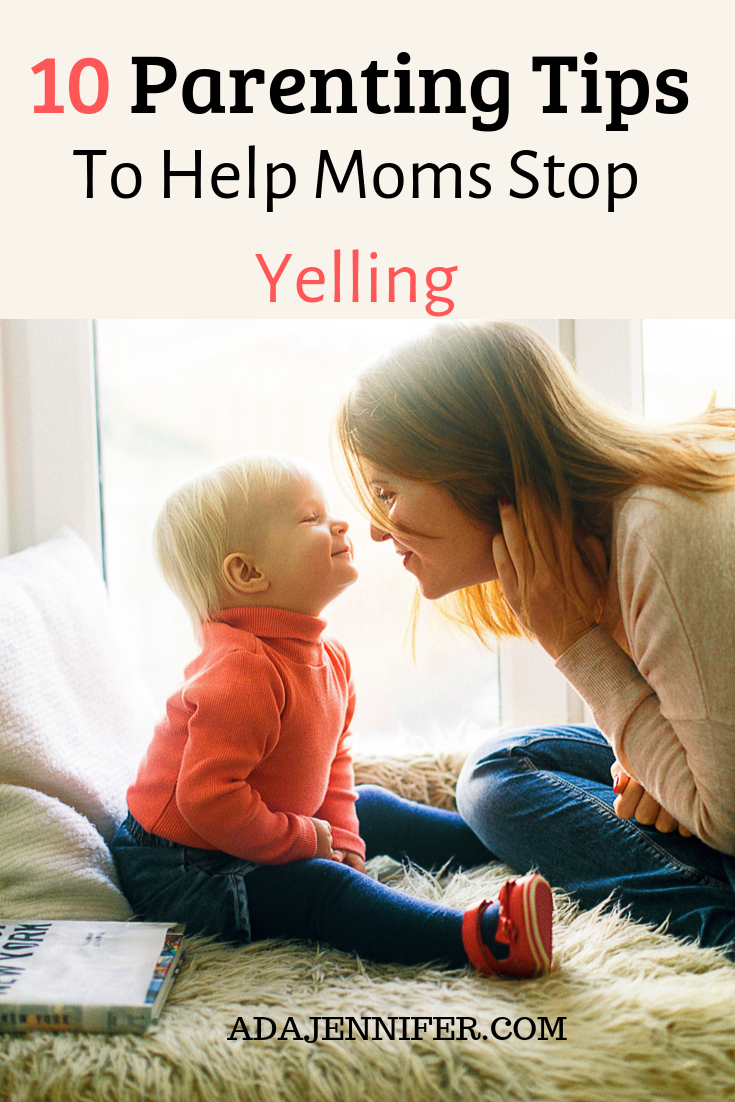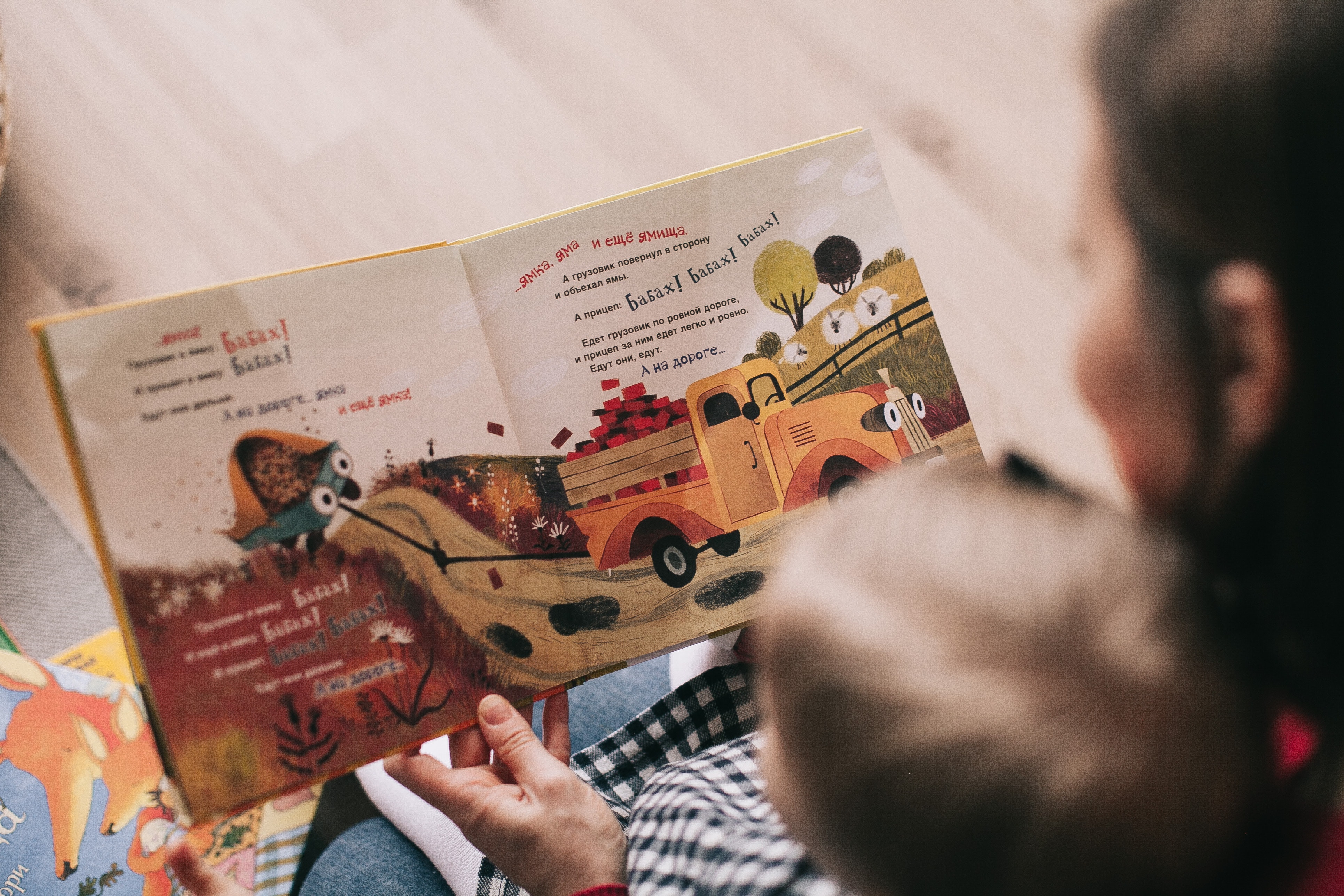10 Parenting Tips To Get Your Kids To Behave Without Yelling
 Yelling at kids should never be an option parents should consider because of the deeper psychological issues that it poses and how it most time truncates what would have been a healthy relationship between parent and child.
Yelling at kids should never be an option parents should consider because of the deeper psychological issues that it poses and how it most time truncates what would have been a healthy relationship between parent and child.
But let’s face it, there are times we feel like looking for a safe space to hide away from our kids because of the tantrums they throw from time to time. This can, however, be fixed, just as the saying goes that there is no problem without a solution. There are ten ways we can get our kids to behave without yelling and losing our temper.

1. Make Your Child Feel Comfortable
Kids often whine for a reason. You can neutralize that reason. Before going out to school, church, shop or wherever you have to go with your little ones, make sure they are prepared for it, which means they have had enough sleep, enough food and you have everything they might need with you. It wouldn’t hurt to take a toy to the grocery store and it might stop your child from begging for another one.
If you are going out for a longer time, take their favorite blanket with you, it will give them a feeling of home and safety. As a parent, you should take plenty of stuff with you even when you leave the house for a short time. If someone is making fun of you, let them. The most important thing is that you and your kids feel comfortable and prepared for whatever may come your way.
2. Let Your Toddler Choose
It is a good idea to let your child choose, I am not talking about making life-defining decisions like – which house to move into or where to go on vacation, start with little things which will make him or her feel like they are in control. Control also means responsibility, they will of cause not know it just now but will see how their choices affect what they do and how they feel.
You can also go smart about it and direct your child where you want them to be, just give them an alternative where both options are good for example you can wake them up in the morning and offer to ask them to choose whether they want to get dressed first or brush their teeth, they would eventually have to do both, but this way, they would feel like they are being given some choice.
3. Find Out What Is Bothering Your Kid

This is especially important for younger kids under two and a half years. At this age, they have a vocabulary of around fifty words and can’t build a sentence out of them to express their cravings for things, their thoughts, and wishes. They just can’t tell you what they want; you don’t get the message, they don’t get an answer, so what do they do! Throw tantrums.
The solution to this, however, is to try to create a sign language your kids would understand and remember -teach them to show basic words like food, milk, sleep and so on.
4. Distract Your Little One

You know how you feel unhappy when something is bothering you but going out with friends or reading a book can help you set your mind on other things and it gets better. Your child has his/her concerns, and when he /she feels danger is coming, their face is reddened or they start giving other signs of a tantrum.
When this happens, distract them. Say things like – let’s go for a walk, how about we read your favorite book. These are all great ways to divert your child’s attention, even telling a little joke or making a funny face can help.
5. Become A Good Teacher For Your Kid
Do you remember your favorite teacher? How about you find that favorite teacher for your kid.
Instead of harsh discipline, be a calm parent and manage your own emotions better by first of all, taking deep breaths that will help you stop being angry at them for throwing tantrums. A good teacher won’t be mad at you for not being good at maths. Second, teach your little one to overcome frustration, show them that drawing, reading a book or cuddling with their favorite toy is cool.
Kids want to do what is right but sometimes they just don’t know what that is. Explain your concerns and fears to them. Never yell in front of your kids, you could make up an angry vocabulary for your child by doing this that will be a list of words to explain negative emotions.
6. Do Not Provoke Tantrums
Why would you ever do it? Well I am not saying you want that to happen, but you might trigger them -your child loves candy, but too much is bad for him or her, then do not put it where they can see it, why remind them of something you don’t want them to have.
If Your kid doesn’t like to be forcefully interrupted or feels uncomfortable about doing certain things, give him/her warnings before he/she has to do it and explain why it is necessary. The activity itself might not last long but the tantrum and bad mood could last for hours.
7. Use Positive Words
Instead of physical punishment, physical abuse or even verbal abuse that can create negative childhood experiences for a child, use positive advice to reinforce good behavior in kids. For instance – saying to your kid, don’t jump on the couch could motivate him or her to do the opposite especially if they are moody. Rather say – furniture is for sitting, you could go outside if you want to jump. This sounds better and is unlikely to lead to conflict.
8. Keep A Straight Face

Yelling at kids should never be one of the parenting strategies you use for your kids.
Even when he/she starts whining, you have the right not to respond to him/her. Introduce a warning sign, which will show you are going to stop listening.
9. Give Praise When Your Kid Deserves It
Always thank your kids for doing the right thing. It is a good idea to say things like -‘Thank you’ when your child does well at a task or behaves in a praiseworthy way. Do not feel awkward about giving thanks for the most basic things. Motivate your kids to behave well in exchange for little treats.
10. Be Smart About Giving Pocket Money

All families are different and have different incomes. There is no universal answer for how much pocket money to give your kids. Pocket money should allow the kid to save money for a special toy they like, buy gifts for their siblings and other family members, go out with their friends and buy a movie ticket. If you give your child too much, they will find it hard to know the value of money.
Your kids should know money is earned. Some parents pay their kids for doing chores around the house. It is not always a good idea to do this because they might believe the only reason to do something for their family’s good is to be paid. Give your child tokens, not real money- you decide how much these tokens are worth. Saving them, kids can pay for meaningful experiences.
Conclusion
Most times parents start yelling at kids out of frustration, when they fail to behave as they should. But this is never the right thing to do. In times when you feel the need to yell, try to stay calm and apply the aforementioned tips.
Pin For Later


Thank you for this!
I Thank you too for reading and opening your mind to the ideas presented.